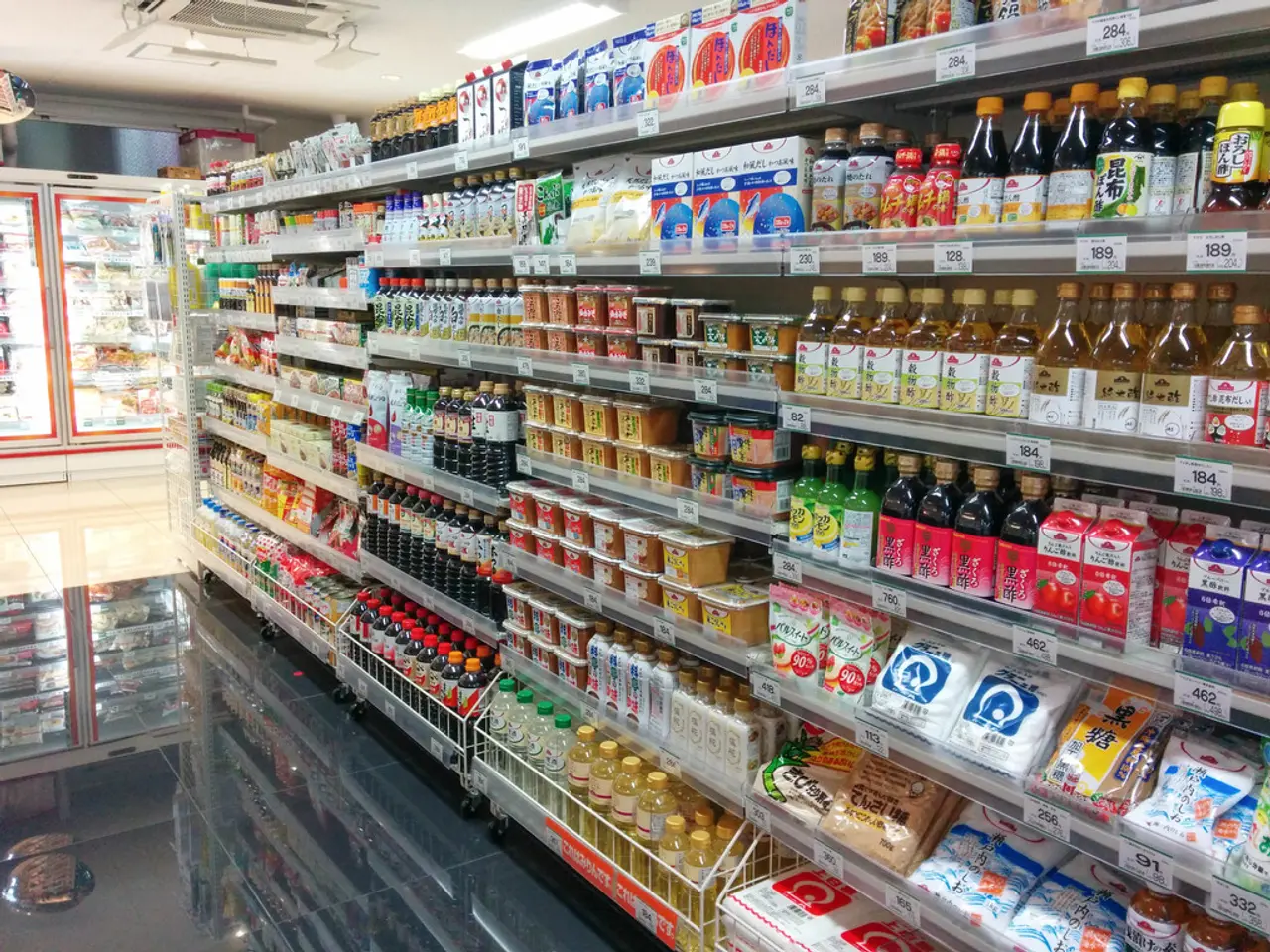Stock market index DAX experiencing significant rise due to optimism surrounding potential Federal Reserve interest rate reduction and improving trade relations, boosting investor sentiment.
In July 2025, Germany's annual inflation rate remained stable at 2.0%, unchanged from June and slightly above expectations of a decrease to 1.9%. This marks the lowest inflation level in eight months, with falling energy costs contributing to the overall restrained inflation despite some rises in food prices and certain service sectors.
The harmonized index of consumer prices (HICP) posted a 0.4% rise in July, following a 0.1% increase in June. Conversely, wholesale price inflation eased in July, largely due to lower prices of solid fuels and mineral oil products, with month-on-month wholesale selling prices edging down 0.1%.
The German market responded positively to this news, with the DAX rising by 183.13 points or 0.76%. Some stocks, such as Munich RE, Zalando, and E.ON, saw gains, while others like Deutsche Post, Volkswagen, Porsche, Mercedes-Benz, Rheinmetall, Bayer, SAP, Fresenius Medical Care, Fresenius, and Continental experienced modest losses or declines.
The stability in inflation near the European Central Bank's (ECB) target of "below but close to 2%" could temper market volatility tied to interest rate speculation and sustain investor confidence. However, sharp increases in travel-related costs and food prices might introduce sector-specific cost pressures, influencing stock valuations in consumer discretionary and food sectors.
In summary, Germany's inflation rate stayed steady at 2.0% in July 2025, with energy prices dropping and food and service costs rising moderately. The implications for stocks suggest that stability in inflation near the ECB target may support steady market conditions, reducing pressure for sudden rate changes and aiding investor confidence. However, some sectors might face mixed effects due to rising prices in travel and food-related services.
This overview is based on the latest data and economic commentary as of August 2025.
[1] Source: Statistisches Bundesamt [2] Source: Deutsche Bundesbank [3] Source: Reuters
Read also:
- Catastrophic blast at a US Steel facility in Pennsylvania causes 2 fatalities, inflicts injuries on 10 individuals
- Weekly developments in the German federal parliament, the Bundestag
- Solar Shutdown: Merz Proposes Billions of Gas Discharge - Reverse Plan
- New guidelines for NEPA processes unveiled by federal agencies, in alignment with Executive Order 14154 and the Seven County Decision of the Supreme Court








